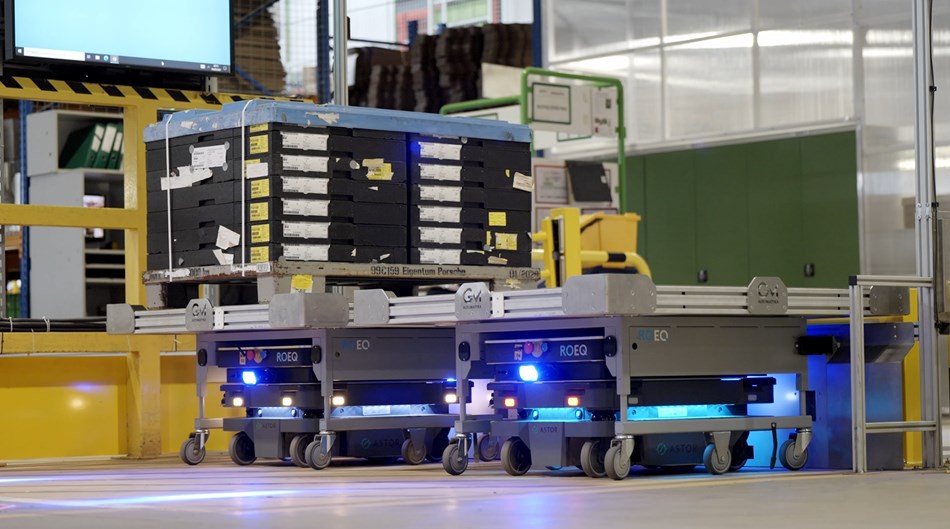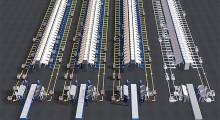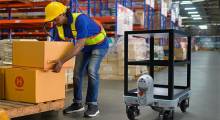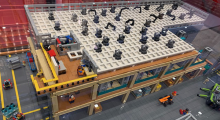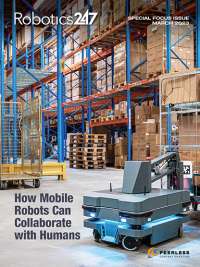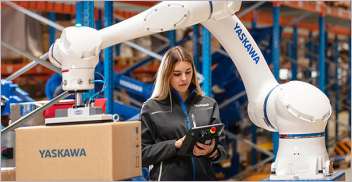Valeo is a global company with headquarters in France that manufactures automotive parts. Valeo has deployed two Mobile Industrial Robots (MiR) autonomous mobile robots in its wiper plant in Skawina, Poland. The company was actively looking for possibilities to increase the efficiency of its internal transportation processes. Valeo also was struggling to hire workers due to the labor shortage and high absent rates.
Valeo has factories all over the world, including 4 production plants in Poland. The VALEO Wiper Systems Production Plant has been operating in Skawina since 2001. It is one of the largest windshield wiper factories in the world and Valeo's biggest. The robots have helped improve process efficiency and have allowed for higher flexibility at the plant.
Issue & solution
The challenge was the diversity of pallet types used, according to Paris, France-based Valeo.
“Every customer has their own specific pallet. We're a manufacturer that must adapt to customers, and that means each line has a different way of discharging goods. On top of that, there are different operational corridor widths inside the plant,” said Dominik Wąsiel, site supply chain manager and regional supply chain engineer and development manager at Valeo, wiper systems production plant in Skawina.
The solution to meet these challenges turned out to be the MiR robots.
The first mobile robot was deployed in 2020 to transport small parts in the assembly hall. There are currently four robots in the factory, including two MiR250 in operation at Valeo's wiper production plant in Skawina. The mobile robots are being used to transport containers with small parts on specially designed carts with racks and by towing them using an attached hook.
Intralogistics optimization
Jobs are dynamically assigned to robots depending on their current location and mission load. Management of the job queue is supervised by fleet software.
The MiR robots transport about 18 pallets per hour. The fleet management system – MiR Fleet – allows monitoring of robot utilization and maintaining safety stocks for times of increased production or testing of new solutions.
“Logistics costs, the cost of timely deliveries to customers, are a significant item on our income statement. Any possibility of automation is crucial to the profitability of our factory,” - noted Michal Odyniec, director of the wiper systems production plant at Valeo in Skawina.
“Robotization of intralogistics at the Wiper Plant in Skawina has significantly improved the efficiency of our processes. We estimate that the payback time on the investment is about 12 months,” – added Wąsiel.
Valeo's installation was supported by ASTOR in Cracow, MiR's distributor in Poland. ASTOR developed the project conceptually and ensured the profitability of the investment.
The implementation
“Improving safety, eliminating damage, and reducing time are just a few examples where implementing mobile robots has brought us a lot of benefits,” said Michał Kanarek, warehouse manager at the production plant.
The AMR robots from the manufacturer Mobile Industrial Robots were chosen for transporting workpieces in the assembly hall. The first mobile robot implemented in 2020 initiated the idea of robotizing the intralogistics processes.
GM Automatyka, ASTOR’s partner, handled the implementation of the project in terms of mechanics, electrics, and applications. Currently, with ASTOR's support, VALEO engineers take care of the planning and implementation of the robot tasks.
Equipped with special sensors, the robots safely navigate the traffic routes simultaneously. In special danger zones such as intersections, the robots additionally give light and sound signals and reduce their speed. Tasks are dynamically assigned to the robots, depending on their current location and task load.
Mobile robot systems operate autonomously. There is no operator, the workers' only task is to deliver containers or pallets with workpieces to designated locations. Between tasks, the robots use the time to automatically recharge their batteries..
Editor's note: This post originally appeared on MiR's website. It has been edited to meet Robotics 24/7's style guidelines and for readability.
Article topics
Email Sign Up

